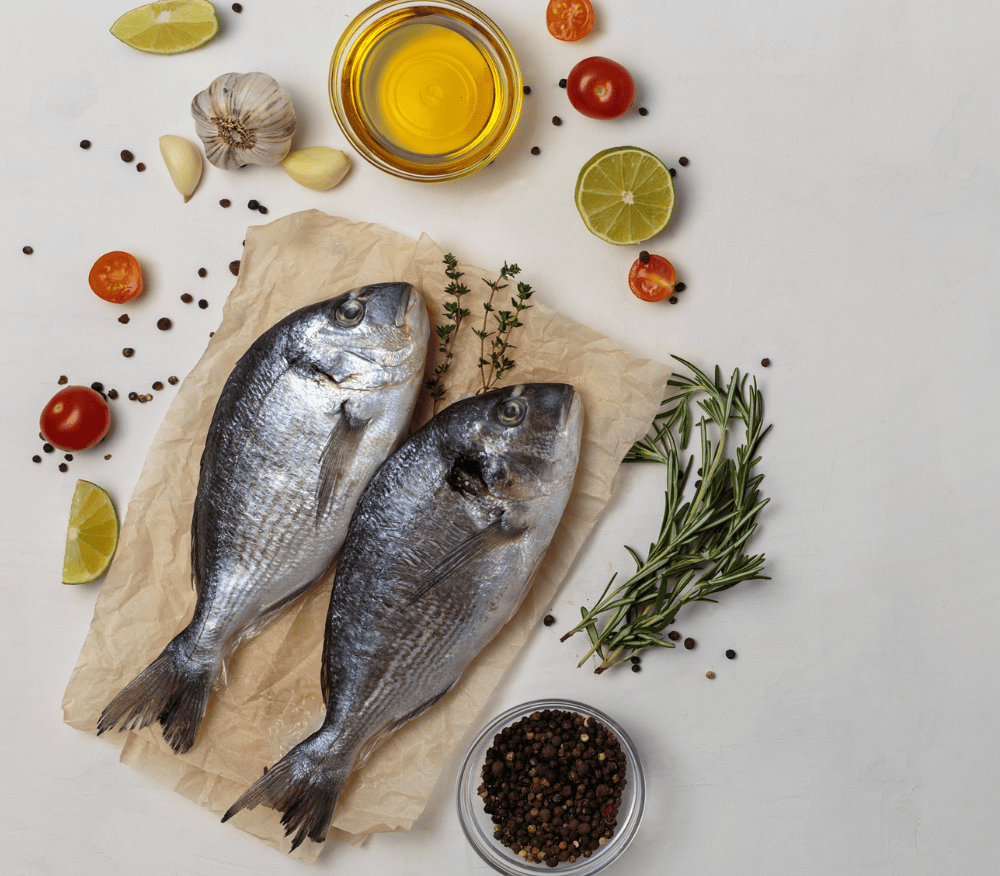Depression is one of the most common mental health disorders worldwide. In fact, it’s estimated that 5-10% of people experience depression with rates continuing to increase.
Although depression can be managed and the impact it has on everyday life can be reduced, conventional treatments have limitations and don’t work for everyone.
In an era of rising mental health challenges, the SMILES trial - a ground-breaking study that established a link between diet and depression – offered a complementary approach that is rooted in something we do every day: eat.
Conducted in 2017 by Professor Felice Jacka and her team at the Food and Mood Centre at Deakin University in Australia, this study was the first of its kind to ask the question ‘if I improve my diet, will my mood improve?’.
What did the study do?
The researchers took 56 people (ages 18 years old +) with moderate to severe depression and divided them into two groups:
- The diet group (intervention group) received personalised nutritional support and followed a modified Mediterranean diet (7 sessions, 60 minutes long)
- The befriending group (control group) received social support and talked about neutral topics such as sport or music (7 sessions, 60 minutes long)
After 3 months, those in the diet group had significant improvements in their depressive symptoms compared with the befriending group. In fact, 32% of those in the diet group met the criteria for remission of depression, compared with just 8% of those in the befriending group.
This was a landmark finding showing that food is not just fuel for physical health – it’s a powerful tool for mental health too.
What did the modified Mediterranean diet look like?
The modified Mediterranean diet was designed to be easy-to-follow and sustainable.
It was developed using existing dietary guidelines from Greece and Australia with focus on increasing diet quality through consumption of 12 key food groups:
- whole grains (5–8 servings per day)
- vegetables (6 per day)
- fruit (3 per day)
- legumes (3–4 per week)
- low-fat and unsweetened dairy foods (2–3 per day)
- raw and unsalted nuts (1 per day)
- fish (at least 2 per week)
- lean red meats (3–4 per week)
- chicken (2–3 per week)
- eggs (up to 6 per week)
- olive oil (3 tablespoons per day)
Reducing intake of ‘extras’ was encouraged. This included sweets, refined cereals, fried food, fast-food, processed meats and sugary drinks (no more than 3 per week). Red or white wine consumption beyond 2 standard drinks per day and all other alcohol (e.g. spirits, beer) were included in the ‘extras’ food group.
On average, this diet provided around 50g of fibre, 411g of fruit and 709g of vegetables every day (for context, one apple or half a tin of sweetcorn weighs around 100g).
The gut-brain connection
The SMILES trial supports the idea that the gut-brain connection plays a key role in mental health, but how they ‘talk’ to each another?
It’s thought they use different communication channels including the nervous system, the hormonal system, the gut microbiome, and the immune system. For a deeper dive, check out this article on the gut-brain connection.
Putting food at the forefront
The SMILES trial was a game-changer in mental health research and highlighted the importance of prioritising diet quality in the management of depression.
Since then, further studies (Francis et al 2019, Parletta et al 2019, Bayes et al 2022) have shown similar results.
How to apply the SMILES trial to you
Focus on simple Mediterranean-style tweaks that can work for a lifetime. Here are some examples:
- Make olive oil your go-to oil for cooking, salad dressings, marinating, and dips.
- Have snacks to hand such as dried fruit and nuts, pieces of fruit to dip in nut butter, slices of veg to dip in humous, popcorn, wholegrain crackers, homemade oat bars.
- Swap out 50% of the mince used in spaghetti bolognaise, lasagne, chilli con carne or shepherd’s pie and replace with pulses such as chickpeas or lentils.
- If you’re having pizza, load up with vegetables (peppers, onions, sweetcorn…) and include a side salad.
- Swap white bread for wholemeal or rye bread. If it’s too much of a leap, try 50:50. Swap white rice/pasta for brown rice/pasta or mix 50:50. Swap out 50% of your regular cornflakes and add bran flakes.
- Keep the skins on fruit and vegetables when you can – potatoes, kiwis, cucumber, apples, carrots, aubergine.
- Add pulses (lentils, chickpeas, butter beans) and seeds (chia seeds, flaxseeds) to soups and stews.
- If you’re drinking alcohol, choose red wine preferably and drink with meals.
Remember, small and sustainable changes that you can stick to make a big difference to your long-term health.
Dig into 10 Mediterranean-inspired recipes
Want to learn more? Our 3 fave gut-brain reads
1. How to Build a Healthy Brain: Reduce stress, anxiety and depression and future-proof your brain by Kimberley Wilson

2. Brain Changer: How diet can save your mental health – cutting-edge science from an expert by Professor Felice Jacka

3. Genius Gut: 10 New Gut-Brain Hacks to Revolutionise Your Energy, Mood, and Brainpower by Dr Emily Leeming

Sources
Prevalence and variability of current depressive disorder in 27 European countries: a population-based study. The Lancet. (2021). Link.
Global trends in the prevalence and incidence of depression: a systematic review and meta-analysis. Science Direct. (2021). Link.
A randomised controlled trial of dietary improvement for adults with major depression (the 'SMILES' trial). BMC Medicine. (2017). Link.
A brief diet intervention can reduce symptoms of depression in young adults - A randomised controlled trial. (2019). Link.
A Mediterranean-style dietary intervention supplemented with fish oil improves diet quality and mental health in people with depression: A randomized controlled trial (HELFIMED). (2019). Link
The effect of a Mediterranean diet on the symptoms of depression in young males (the “AMMEND: A Mediterranean Diet in MEN with Depression” study): a randomized controlled trial. Science Direct. (2022). Link







